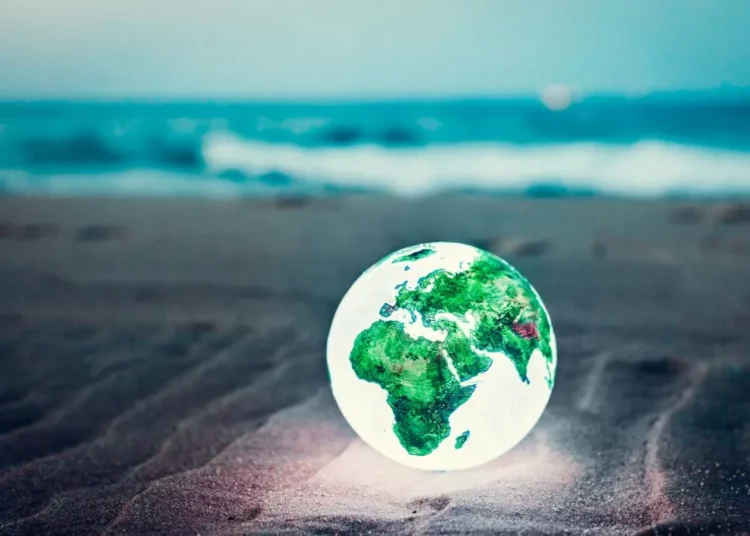What exactly is Geopolitics ? Why are we concerned about it? Is it really that important? What is the context of geopolitics in our daily lives? I will try to uncover helpful insights and along the way will throw an influx of information that can get us together out of this bucket with a brief dive into the Arctic as a standalone case study, so let’s dissect this topic and receive an insight into the world of geopolitics
Understanding basics
Learning from past mistakes and history has always been a great way to adapt, learn, and Grow! Isn’t it? In ancient times, before settling on a particular location people used to see geographical dynamics such as water nearby, whether the land was fertile or not, less frequent earthquakes, climate changes, etc. It was important then, it is definitely important now. Just the dynamics have shifted a little around. In the next section let’s lay the ground for some basics.
Under the broader umbrella of the world and society, there are politics and geopolitics. Politics is all about what happens inside a country, how people are governed, and how the government makes rules and laws to manage human society. Geopolitics on the other hand is the study of how geographical factors of a particular region will shape its foreign policies, economic drivers, military dynamics, and strategies which leads to deciding its international political behavior through geographical variables.
Importance of why?
We will explore some unknown directions to answer this question – Why is it really important?
Geopolitics is primarily important for planning the future vision of a state, organization, corporation, or institution. By looking at international political behavior and geographical conditions we can make a decision for the future that will either lead to sustainable cooperation or destabilize the ground that might erupt into a chain of conflicts.
While several entities including Governments experience the impact of geopolitics, we can take an example of modern-day businesses. The risks that modern businesses face arise from two main areas: geopolitical and political:
- Political risks are those that arise from the actions of the government or people within a country, such as civil war, labor problems, strikes, or expropriation.
- Geopolitical risks arise from interactions between countries, such as war, sanctions, trade agreements, energy, or military spending.
The Arctic Case Study
The Arctic region covers parts of eight countries in the world: Canada, Greenland, Iceland, Norway, Sweden, Finland, Russia, and the United States. This area’s temperature depends on the region’s proximity, but the coldest temperature recorded is -69 degrees. The Arctic is roughly 14 million square kilometers which is covered with water and solid ice, for most of the parts the region is inhospitable. In the coming decades the climate changes will make the resources and passages available in the Arctic more accessible, with abundant resources and land it should come as no surprise that the Arctic will turn into a geographical flashpoint.
Satellite images confirm melting of Arctic Ice is not a surprise, prediction forecasts summertime sea ice will likely completely cease to exist sometime during the 21st century. As the sea levels rise the flooding levels can increase for countries like the Netherlands, Bangladesh, and Maldives, but the limelight will be geopolitical consequences. The three most important resources in the Arctic are minerals, fish stocks, and huge oil and gas reserves, most of which are in Russian territories, including the North Sea in the European territory.
The USA used a geology-based probabilistic method in 2008 to estimate the treasure hidden in the Arctic. The results pointed out that in the north of the Arctic circle, there are roughly 90 billion barrels of oil, 47 trillion cubic meters of natural gas, and around 44 billion barrels of natural gas liquid, which is proportionate to roughly 13% of undiscovered oil and 30% natural gas reserves of the world.
It holds around 22% of the world’s undiscovered natural resources, making it a real hotspot for governments and businesses to exploit energy resources. The energy giants like ExxonMobil, Shell, and Rosneft are already competing for the drilling license, however, with the current market energy prices it will not be a profitable affair. The claims of these companies and nations are based on United Nations (UN) convention law. Let’s discuss more about this in the upcoming section.
UN Dynamics
The UN Convention Law Of The Sea (UNCLOS) oversees the Arctic region. The Exclusive Economic Zone (EEZ) lies beyond the territorial waters and extends up to 370 km from the shore. However, the EEZ can be extended to 650 km through scientific measurement of the continental shelf. Basically, by providing scientific evidence to measure continental shelf one can extend the EEZ and claim more resources and waters. The territorial disputes are already complicated, yet adding another layer of continental shelf discussion makes it more challenging. Denmark, Russia, the United States, Norway, and Canada have already alleged their claims to the UN. These claims overlap each other and it’s up to the UN to decide in which court the ball will be. The inhospitable weather conditions made these disputes pointless, however, this surprising turn of events in 2007 when the Arctic ice cover was 50% lower than in the 1950s grabbed the spotlight. In the near future as climate change opens up the Arctic, it will become a necessity to settle this dispute by law.
It’s not just the natural resources and land debate. These geopolitical dynamics are extended to further issues such as using land routes for transportation. For instance, let’s see a future forecasted dispute. In the current scenario, the maritime traffic between Europe and East Asia is routed through the Panama Canal. As per the current predictions, it is most likely that the maritime traffic will shift to the Arctic Ocean by 2040. A new milestone was set when a cargo vessel went through in 2014 through the northwest passage of the Arctic without the escort of an icebreaker. This passage which connects markets of Europe and East Asia through the Canadian Arctic is nearly 40% shorter than the current route and the waters are deeper allowing vessels to carry more cargo. It is predicted that these passages will be open for nearly 2 months a year around 2040, however with the help of special icebreaker ships this can be extended to a few more months. These passages come under Canada’s internal waters from a legal framework but due to their geopolitical value Russia, the USA, and European countries claim it as internal straits. At present Canada is engaged in legal proceedings to delineate the limits of its continental shelf. Let’s wrap it up!
CONCLUSION
The three main objectives to explore or exploit the Arctic region should be summed up as :
- Explore or exploit hydrocarbon and mineral resources.
- Establish military bases to claim territory.
- Establish authority over new trading routes.
The interests and involvement of such high powers across the world on this particular topic could destroy or develop new threads. Countries and Businesses can leverage the Arctic benefits to gain long-term success in this increasingly competitive global environment.
Join the conversation on IMPAAKT and contribute to impactful discussions shaping our world. Share your insights and make a difference today!

 More about the Author
More about the Author










